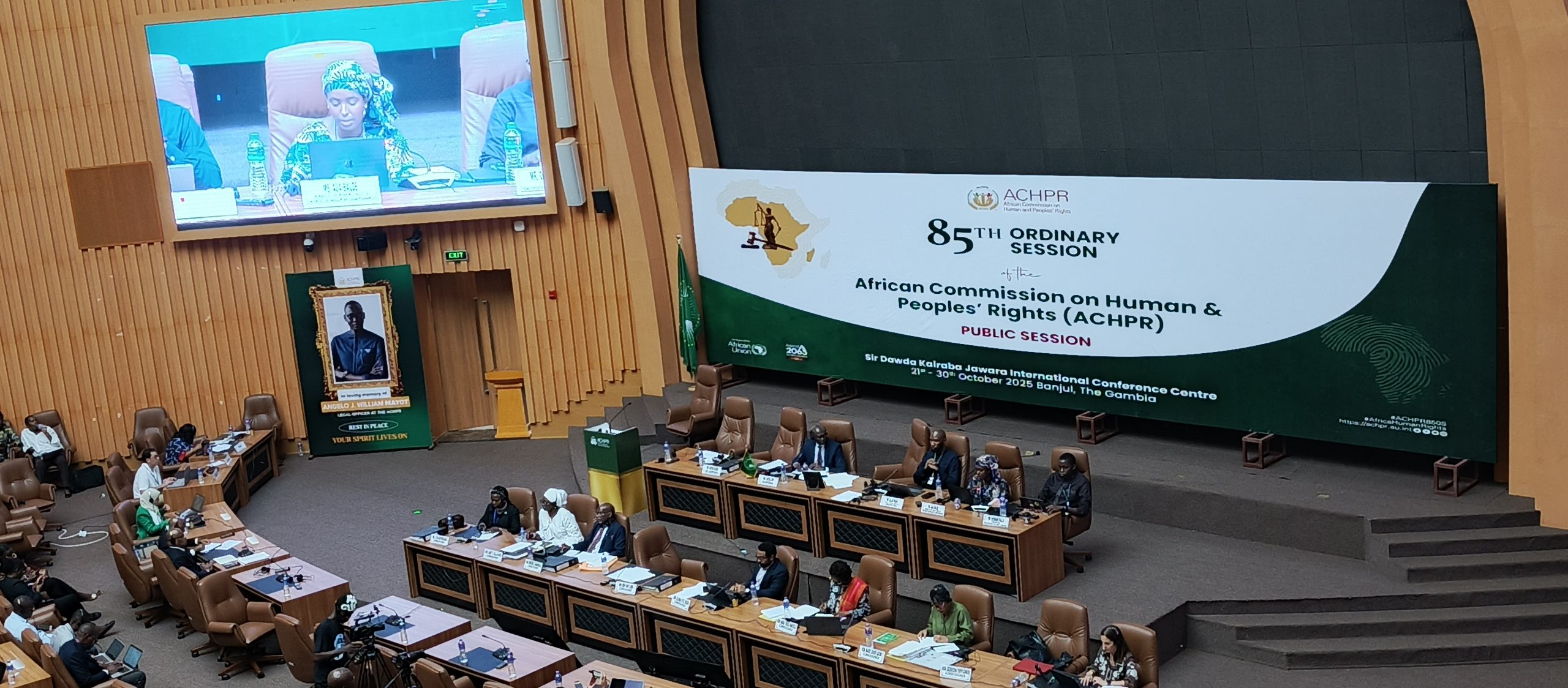The crackdown on Ukraine’s anti-corruption agencies, explained – The Kyiv Independent

Report on Threats to Ukraine’s Anti-Corruption Infrastructure and Implications for Sustainable Development Goal 16
Executive Summary
Recent coordinated actions by Ukrainian state authorities against the country’s independent anti-corruption bodies, including the National Anti-Corruption Bureau (NABU) and the Special Anti-Corruption Prosecutor’s Office (SAPO), represent a significant setback for Ukraine’s progress towards Sustainable Development Goal 16: Peace, Justice and Strong Institutions. A series of searches, investigations into employees, and legislative maneuvers threaten to dismantle the institutional independence crucial for achieving SDG Target 16.5 (Substantially reduce corruption and bribery) and SDG Target 16.6 (Develop effective, accountable and transparent institutions). These events have drawn serious concern from civil society and international partners, who view them as a politically motivated effort to undermine the rule of law and control one of the last independent state institutions.
Analysis of Actions Against Anti-Corruption Bodies and Impact on SDG 16
Systematic Pressure on Key Institutions
A series of actions undertaken by the Prosecutor General’s Office, the Security Service of Ukraine (SBU), and the State Investigation Bureau indicate a systematic campaign against Ukraine’s anti-corruption framework. These actions directly challenge the operational capacity and independence of institutions established to uphold transparency and accountability.
- Widespread Searches: At least 70 searches were conducted in premises connected to NABU, with additional searches at SAPO. NABU reported that these were conducted without search warrants and involved physical force against one of its detectives.
- Targeted Investigations: Probes have been opened against at least 15 NABU employees for a range of alleged offenses, from traffic accidents to purported links with Russia.
- Legislative Subordination: Ukraine’s parliament passed a bill on July 22 that effectively undermines the independence of NABU and SAPO, a move that directly contravenes the principles of SDG 16.6.
- Charges Against Activists: Vitaliy Shabunin, head of the Anti-Corruption Action Center, was charged with evading military service and fraud, which he asserts is a political vendetta for his anti-corruption work.
These developments are viewed by observers, including the Anti-Corruption Action Center, as a “180-degree turn away from European integration” and an attempt to dismantle a decade of progress in building institutions capable of combating high-level corruption, a cornerstone of SDG 16.
Official Justifications vs. Concerns of Political Motivation
While state agencies have justified their actions as necessary law enforcement, the context and nature of the allegations have led to widespread criticism that they are a pretext to neutralize independent oversight.
- Alleged Links to Russia: The SBU has justified warrantless searches and detentions by citing investigations into employees’ alleged espionage for Russia. However, critics argue that while Russian infiltration is a valid concern for any state agency, it is being used here as a cover to attack the institutional integrity of NABU, thereby weakening the state’s overall resilience and its ability to meet SDG 16 targets.
- Questionable Probes: The decision to investigate years-old traffic accidents and other minor infractions is seen by critics as evidence of a politically motivated campaign to harass and pressure NABU personnel rather than a genuine pursuit of justice.
This approach undermines public trust and the legitimacy of law enforcement, creating a climate where accountability mechanisms are weakened, directly impeding progress on SDG Target 16.5.
Implications for Rule of Law and Institutional Integrity (SDG 16.3 & 16.a)
Erosion of Institutional Independence and the Rule of Law
The coordinated crackdown is a direct assault on the principles of institutional independence and the rule of law, which are central to SDG Target 16.3 (Promote the rule of law and ensure equal access to justice). The actions suggest an effort to transform NABU into a government-controlled entity, unable to pursue investigations against powerful figures.
- Compromising Investigations: The SBU conducted checks of NABU and SAPO employees’ access to state secrets, a move that anti-corruption bodies fear gives the SBU access to sensitive investigative data, potentially undermining current and future cases.
- Undermining Due Process: The alleged use of warrantless searches and politically motivated charges against activists and detectives challenges the fundamental principles of due process and the rule of law.
Such actions weaken the national institutions that are vital for ensuring accountability and justice, contrary to the objective of SDG Target 16.a, which calls for strengthening such bodies.
International Partnerships and Geopolitical Context (SDG 17)
Triggers for the Crackdown
Observers suggest the intensified pressure on NABU is a direct response to its recent high-profile investigations targeting President Zelensky’s inner circle. This includes a case against former Deputy Prime Minister Oleksiy Chernyshov and another involving a relative of a co-owner of Zelensky’s production company. This retaliation against an independent body for fulfilling its mandate is a grave threat to the establishment of strong institutions under SDG 16.
Response from International Partners
The events have triggered a response from Ukraine’s international partners, highlighting the role of SDG 17 (Partnerships for the Goals) in upholding democratic and sustainable development norms.
- G7 Ambassadors: The G7 Ambassadors issued a statement expressing “serious concerns” and their intention to discuss the developments with government leaders, reaffirming their “shared commitment to support transparency, independent institutions, and good governance.”
- European Union: The EU’s ambassador to Ukraine, Katarína Mathernová, stressed that it is “as important as ever to preserve the reform achievements to maintain the support needed to prevail over the enemy.”
The response from these partners underscores that the integrity of Ukraine’s anti-corruption framework is not merely a domestic issue but is intrinsically linked to the international support Ukraine receives and its long-term sustainable development. The current trajectory places Ukraine’s commitment to SDG 16 and its broader European integration goals at significant risk.
Analysis of Sustainable Development Goals in the Article
1. Which SDGs are addressed or connected to the issues highlighted in the article?
The primary SDG addressed in the article is SDG 16: Peace, Justice and Strong Institutions. The entire article revolves around the core principles of this goal, focusing on the challenges to building and maintaining effective, accountable, and inclusive institutions in Ukraine.
- Corruption: The article extensively discusses the investigation of “top-level corruption” and efforts to undermine anti-corruption bodies.
- Rule of Law: It highlights actions that threaten the rule of law, such as law enforcement conducting searches “without search warrants” and using “physical force against one of the NABU detectives.”
- Institutional Independence: The central theme is the struggle for the independence of key anti-corruption institutions like the National Anti-Corruption Bureau (NABU) and the Special Anti-Corruption Prosecutor’s Office (SAPO). The article describes these events as an “attempt by authorities to bring independent anti-corruption institutions under government control” and to “dismantle the anti-corruption infrastructure.”
- International Partnerships: The involvement and concern of international partners like the G7 Ambassadors and the EU Ambassador are mentioned, linking the domestic situation to international cooperation for good governance.
2. What specific targets under those SDGs can be identified based on the article’s content?
Based on the article’s content, several specific targets under SDG 16 can be identified:
-
Target 16.5: Substantially reduce corruption and bribery in all their forms.
- The article directly addresses this by detailing the work of NABU and SAPO in investigating “top-level corruption,” including a case against a former Deputy Prime Minister for “bribery and abuse of power.” It also points to setbacks, such as a proposed bill that would “provide de facto amnesty for corruption in the defense industry.”
-
Target 16.6: Develop effective, accountable and transparent institutions at all levels.
- This target is central to the article. The conflict described is a direct threat to the effectiveness and independence of Ukraine’s anti-corruption institutions. Critics cited in the article argue that the government’s actions aim to “transform the NABU into a loyal satellite that fulfills (government) orders,” thereby destroying its institutional integrity and transparency.
-
Target 16.3: Promote the rule of law at the national and international levels and ensure equal access to justice for all.
- The article implies a breakdown in the rule of law through actions like the Security Service of Ukraine (SBU) conducting searches “without search warrants” and the filing of what are described as politically motivated charges against anti-corruption activist Vitaliy Shabunin, which he calls a “political vendetta.”
-
Target 16.a: Strengthen relevant national institutions, including through international cooperation… to combat… crime.
- The article highlights the role of international cooperation in supporting these institutions. The statements from the G7 Ambassadors and the EU Ambassador expressing “serious concerns” and valuing “partnerships in Ukraine to combat corruption together” show the importance of this target in maintaining the integrity of national anti-corruption efforts.
3. Are there any indicators mentioned or implied in the article that can be used to measure progress towards the identified targets?
Yes, the article mentions or implies several qualitative and quantitative indicators that can be used to measure progress (or regression) towards the identified targets:
- Legislative Framework: The status of key legislation serves as a direct indicator. The article mentions a “bill that would effectively destroy the independence of NABU and SAPO.” The passing or rejection of such a bill is a clear measure of commitment to institutional independence (Target 16.6) and anti-corruption efforts (Target 16.5).
- Number and Nature of Investigations: The article points to the number of actions taken against anti-corruption bodies (“at least 70 searches”) and the nature of the probes (targeting “at least 15 NABU employees”). Conversely, the number of high-profile corruption cases investigated by NABU, such as the one against the “former Deputy Prime Minister Oleksiy Chernyshov,” serves as an indicator of its effectiveness.
- Institutional Independence and Integrity: The ability of law enforcement to conduct searches without warrants, gain access to sensitive investigative data of other agencies, and the filing of charges against anti-corruption activists are all indicators of eroding institutional independence and the rule of law (Targets 16.3 and 16.6).
- International Community’s Assessment: Statements and actions from international bodies like the G7 and the EU serve as an external indicator. The G7 Ambassadors’ statement that they are “closely following today’s developments at NABU” and have “serious concerns” provides a measure of how Ukraine’s progress on governance is perceived globally (Target 16.a).
4. Table of SDGs, Targets, and Indicators
| SDGs | Targets | Indicators Identified in the Article |
|---|---|---|
| SDG 16: Peace, Justice and Strong Institutions | 16.5: Substantially reduce corruption and bribery in all their forms. |
|
| SDG 16: Peace, Justice and Strong Institutions | 16.6: Develop effective, accountable and transparent institutions at all levels. |
|
| SDG 16: Peace, Justice and Strong Institutions | 16.3: Promote the rule of law… and ensure equal access to justice. |
|
| SDG 16: Peace, Justice and Strong Institutions | 16.a: Strengthen relevant national institutions, including through international cooperation. |
|
Source: kyivindependent.com

What is Your Reaction?
 Like
0
Like
0
 Dislike
0
Dislike
0
 Love
0
Love
0
 Funny
0
Funny
0
 Angry
0
Angry
0
 Sad
0
Sad
0
 Wow
0
Wow
0











































































